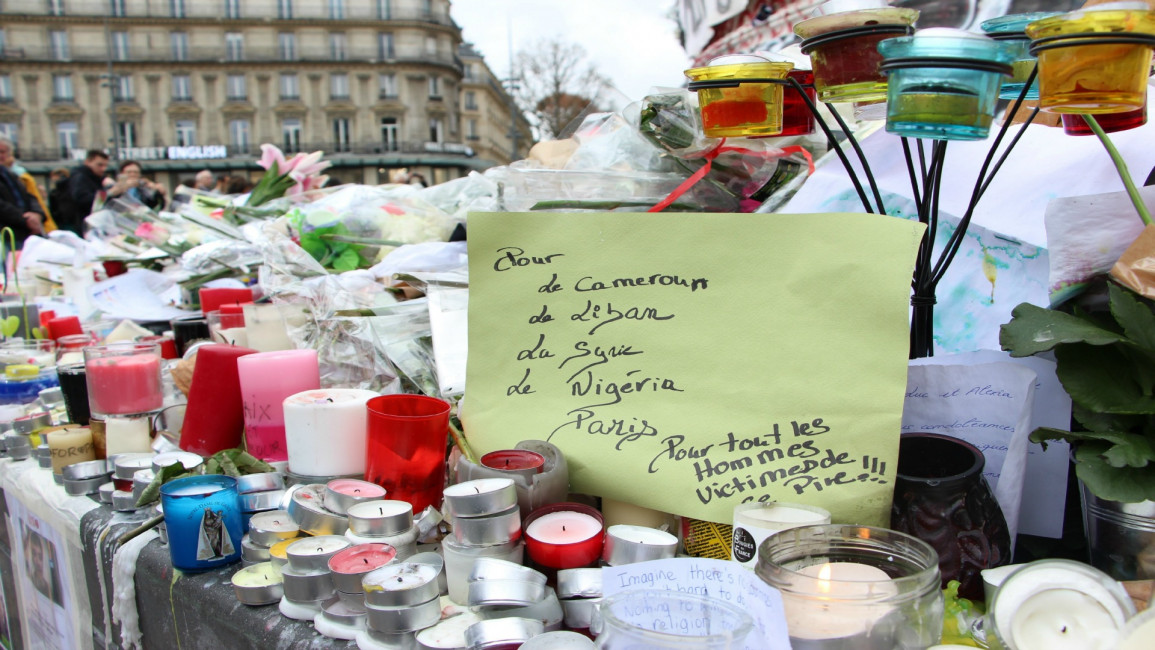
After Paris, it's time for a new Western approach
France has had its own tragic 9/11. The horrific massacre in Paris has left the country reeling.
But George W Bush's knee-jerk militaristic response to the attacks on the Twin Towers did not make the world a safer place, and Europe must learn the lessons of the past 14 years.
The "war on terror" was launched amid a fanfare of divisive rhetoric in which whole swathes of the world were cast as part of an "axis of evil". Military operations were often just as imprecise.
Wars in Afghanistan and Iraq bought untold suffering to people in those countries, and wrought the havoc that paved the way for the emergence of the Islamic State group.
At the same time, Western nations undermined - to an unprecedented extent - their own claims to be champions of liberty, human rights and the rule of law.
Domestic restrictions on protest, new secret trials and a raft of draconian laws creating new terrorism-related offences like "glorification" made securitisation the norm, especially around the state's treatment of Muslim citizens.
| Detention without charge or trial, rendition and torture, revocation of citizenship and extra-judicial executions have all become normalised |
Detention without charge or trial, complicity in rendition and torture, revocation of citizenship and extra-judicial executions have all become normalised.
They embody the war on terror's erosion of international law and basic principles of habeas corpus.
Violent and illegal state responses are just as much a part of the war on terror as acts of political violence by non-state actors. The phrase "cycle of violence" may be clichéd but it is apt.
The suffering of the victims of terrorism and that of the victims of state terrorism show no signs of ending, while governments continue to pursue the same failed policies.
Each time she unveils new anti-extremism laws, British Home Secretary Theresa May justifies the new powers given to police by calling the threat "unprecedented". Yet her solution is always more authoritarian legislation, more social control, and more political repression.
Similarly, France immediately launched a new round of heavy airstrikes on Syria, showing that political leaders there are no more willing to change the course they have been set on for more than a decade. The solution, in their eyes, is also more of the same: more and ever harsher bombing.
This will not bring back those who were murdered. And it will not prevent future deaths. Instead, civilians in IS-controlled areas will likely be killed alongside militants. In the long run, this destruction may in fact help IS recruit. Even a former hostage has pointed this out.
And relatives of the dead have also expressed fear that France will make the same mistakes as the US has made many times over.
Militaristic solutions and explanations based on the idea that religion is at the root of the problem - rather than employing a legitimising discourse used to mobilise people alienated and angered by political issues - will not help Europe.
This is a war of ideas, but one that is fought on the plain of real political issues.
No amount of promoting "fundamental British values" in the UK's schools or promoting "values of the Republic" in France will erase realities on the ground in Syria and Iraq - or the role of Western state policies in creating them.
Words sound hollow and hypocritical against stark material realities. This is why injustice anywhere is a threat to justice everywhere.
| This is a war of ideas, but one that is fought on the plain of real political issues |
Therefore there must be a change of course. Those citizens circulating the slogan vos guerres, nos morts ["your wars, our dead"] articulate the pain of ordinary communities absorbing the backlash against the wars waged by the elites in our name.
Rebuilding a grassroots anti-war movement, while staying true to anti-racist principles in defence of migrants and Muslims, and opposing both state and non-state violence may seem idealistic.
Entrenched patterns of violence will not end overnight. But in the long-term, only a better life for people in Iraq and Syria - people too long treated as "them", people "we" in Britain and France once colonised - will make the world safer for all of "us".
Hilary Aked is an analyst and researcher whose PhD studies focus on the influence of the Israel lobby in the United Kingdom. Follow her on Twitter: @Hilary_Aked
Opinions expressed in this article remain those of the author and do not necessarily represent those of al-Araby al-Jadeed, its editorial board or staff.



